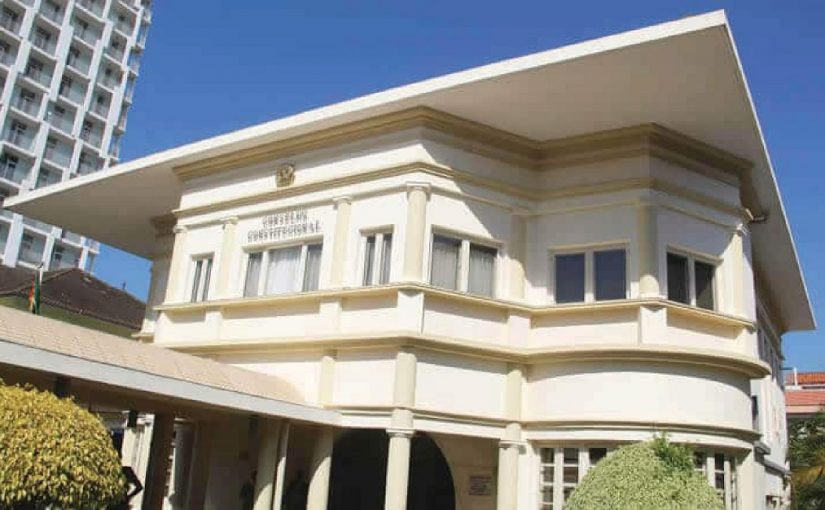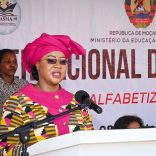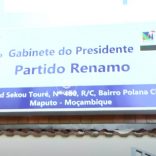Mozambique: Gueta Chapo says literacy remains a national priority
Mozambique Elections: Lawyers see errors in CC’s rulings on district courts

File photo: O País
Lawyers Filipe Sitoi and Tomás Timbana say that the Constitutional Council (CC) should not have claimed exclusive responsibility for deciding whether or not to nullify elections, reasoning that, for the CC to be a last instance, there must be a first instance, and the first instance are the district courts.
On Students’ Day, jurist, lawyer and former advisor to the Assembly of the Republic, Filipe Sitoi, was called to give a lecture to students at the Faculty of Law.
The topic could not be more current. He was invited to speak about the electoral process and the credibility of electoral justice administration institutions. In an intervention lasting just over 40 minutes, Filipe Sitoi pointed the finger at what he understands to be the biggest problems of the last local elections.
He began by asking the following question: “Do district judicial courts have the power to invalidate (declare null and void) electoral acts carried out by the District and City Elections Commissions?”
The answer was given in two parts. First, Sitoi reminded students of what the Constitutional Council said in ruling 15/C/2023 about the situation in Chókwè, where the body denies that the district court could annul the elections and only it (the CC) had the power to do that. The CC’s argument is that if the law says that the CC is the one that validates the results and therefore, then only the CC can invalidate the result.
Filipe Sitoi does not agree and resorts to justify himself to paragraph 2 of article 243 of the Constitution of the Republic, which says that it is the responsibility of the CC “to ultimately assess electoral appeals and complaints, validate and proclaim the electoral results in accordance with the law”.
Thus, Sitoi concludes, “it is not clear and unequivocal that the CC has exclusive competence to validate or invalidate the electoral results in Mozambique, except as a last resort. If it is in the last instance, it means that someone does it in the first instance”.
So, “there is a legal basis for the first instance courts (district courts) to rigorously assess cases of illegalities, serious irregularities that lead to the nullity or invalidation of electoral results by the judicial courts, in the first instance. In our view, there is no legal basis for the CC to claim exclusivity that does not result from the law nor has (this interpretation) a minimum of correspondence with the text of the law nor the powers of the CC, which cannot be assumed,” he adduces.
Speaking after the lecture, jurist Tomás Timbana agreed with Filipe Sitoi.
“I understand that the Constitutional Council, which naturally has the last word in matters of validation and assessment of elections, does not have the first word,” Timbana said, arguing that, at most, the CC should have suspended district court decisions and not decided them definitively.












Leave a Reply
Be the First to Comment!
You must be logged in to post a comment.
You must be logged in to post a comment.